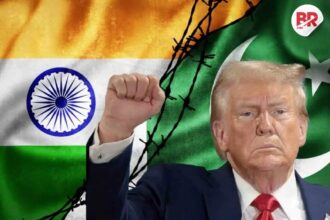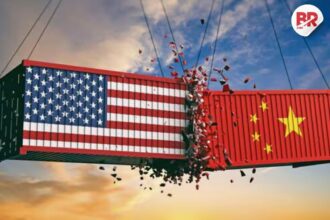
The Aftermath and Implications of Duterte’s Admission in the Drug War
Rodrigo Duterte, the former president of the Philippines, has always been a polarizing figure. Known for his aggressive war on drugs, he once famously said, “I don’t care about human rights.” But now, as he faces murder charges and an ongoing ICC investigation, his recent admission about the drug war has left the world wondering: Is this a step toward justice or just another political game?
The ICC Investigation: A Global Spotlight on Justice
The International Criminal Court (ICC) has been investigating the thousands of deaths linked to Duterte’s drug war. Many of these deaths were labeled as “extrajudicial killings,” raising serious concerns about human rights violations.

The ICC’s decision to charge Duterte with murder is a historic moment. It sends a clear message: no leader is above the law, even after leaving office.
This case could set a precedent for holding leaders accountable worldwide. But will it lead to real justice, or will it become another example of international politics at play?
Also Read: Duterte Faces ICC Investigation: A Turning Point in Accountability for Drug War Crimes
Duterte’s Defense: Fighting Crime or Evading Responsibility?
Duterte’s legal team argues that his actions were part of a legitimate campaign to rid the Philippines of illegal drugs. They claim that the high death toll was due to drug suspects resisting arrest violently. However, critics argue that many of these operations lacked proper oversight, leading to widespread abuse and extrajudicial killings.
Duterte’s admission has sparked debate. Is he finally taking responsibility, or is this a strategic move to lessen his legal troubles? Only time will tell.
Public Reaction: A Nation Torn Apart
The Philippines remains deeply divided over Duterte’s legacy. His supporters praise him for taking a tough stance on crime, crediting him with making the streets safer. On the other hand, critics see his admission as a long-overdue acknowledgment of the atrocities committed during his presidency.
For the families of the victims, this could be a chance for closure. But for others, it’s a reminder of the deep scars left by the drug war.
Also Read: Joshua Riibe’s Three Stories: What Really Happened to Sudiksha Konanki?
What’s Next? Legal Battles and Political Shifts
The legal proceedings against Duterte are expected to be complex and drawn-out. If convicted, he could face severe penalties, which might reshape the political landscape of the Philippines. On the flip side, an acquittal could embolden similar policies in the future, raising concerns about the rule of law.
This case isn’t just about Duterte—it’s about the future of justice in the Philippines and beyond.
A Global Lesson in Leadership Accountability
Duterte’s case is a stark reminder of the fine line between strong leadership and human rights violations. It forces us to ask: How far should leaders go in the name of security? And who holds them accountable when they cross the line?
The outcome of this case could influence how future leaders approach law enforcement and justice, not just in the Philippines but around the world.
Also Read: Vanished Without a Trace: What Happened to Sudiksha Konanki in the Dominican Republic?
Justice or Politics?
As the world watches Duterte’s legal battle unfold, one thing is clear: the pursuit of justice is never straightforward. Whether this admission leads to real accountability or becomes another chapter in political maneuvering remains to be seen.
But one thing is certain—the fight for justice and accountability is far from over.












